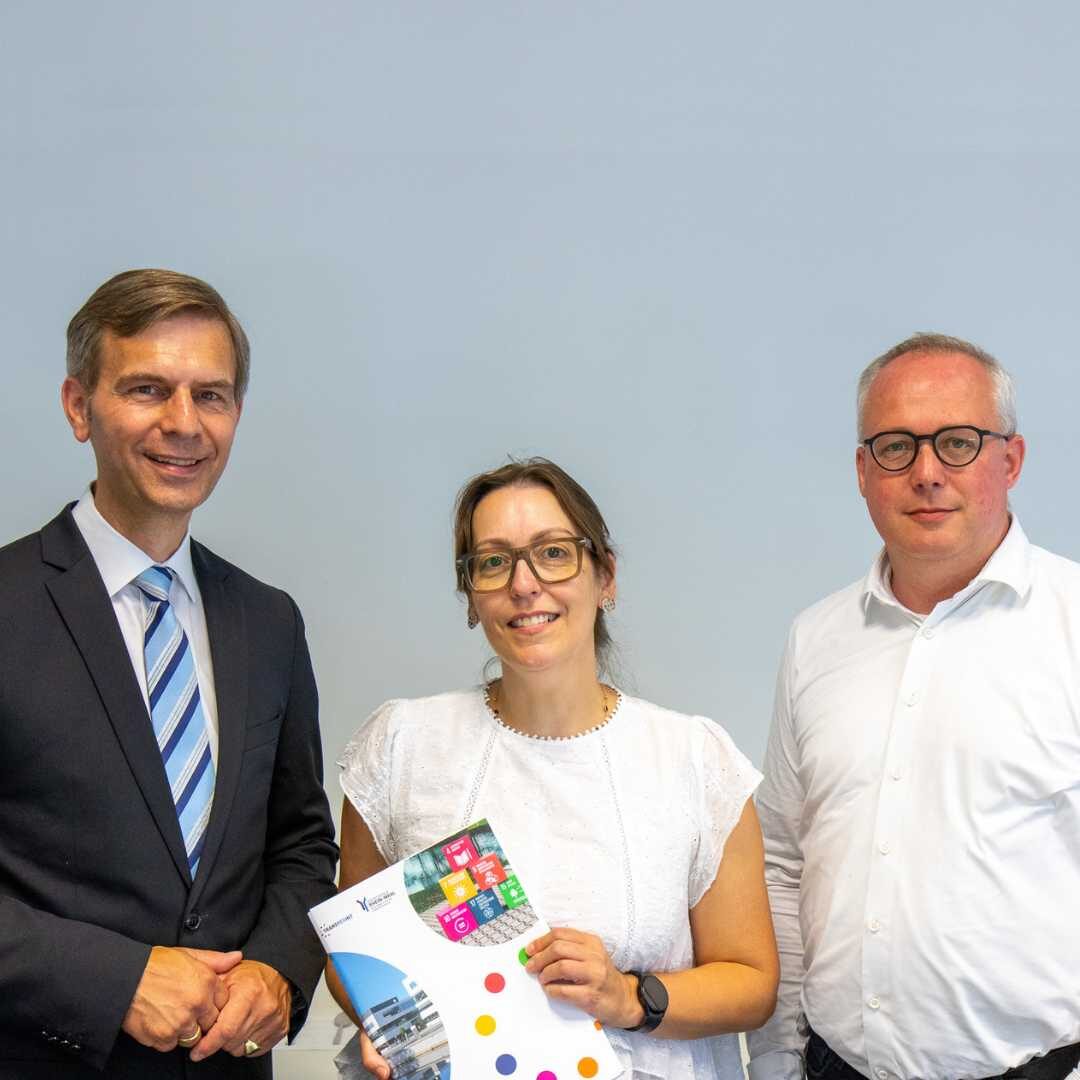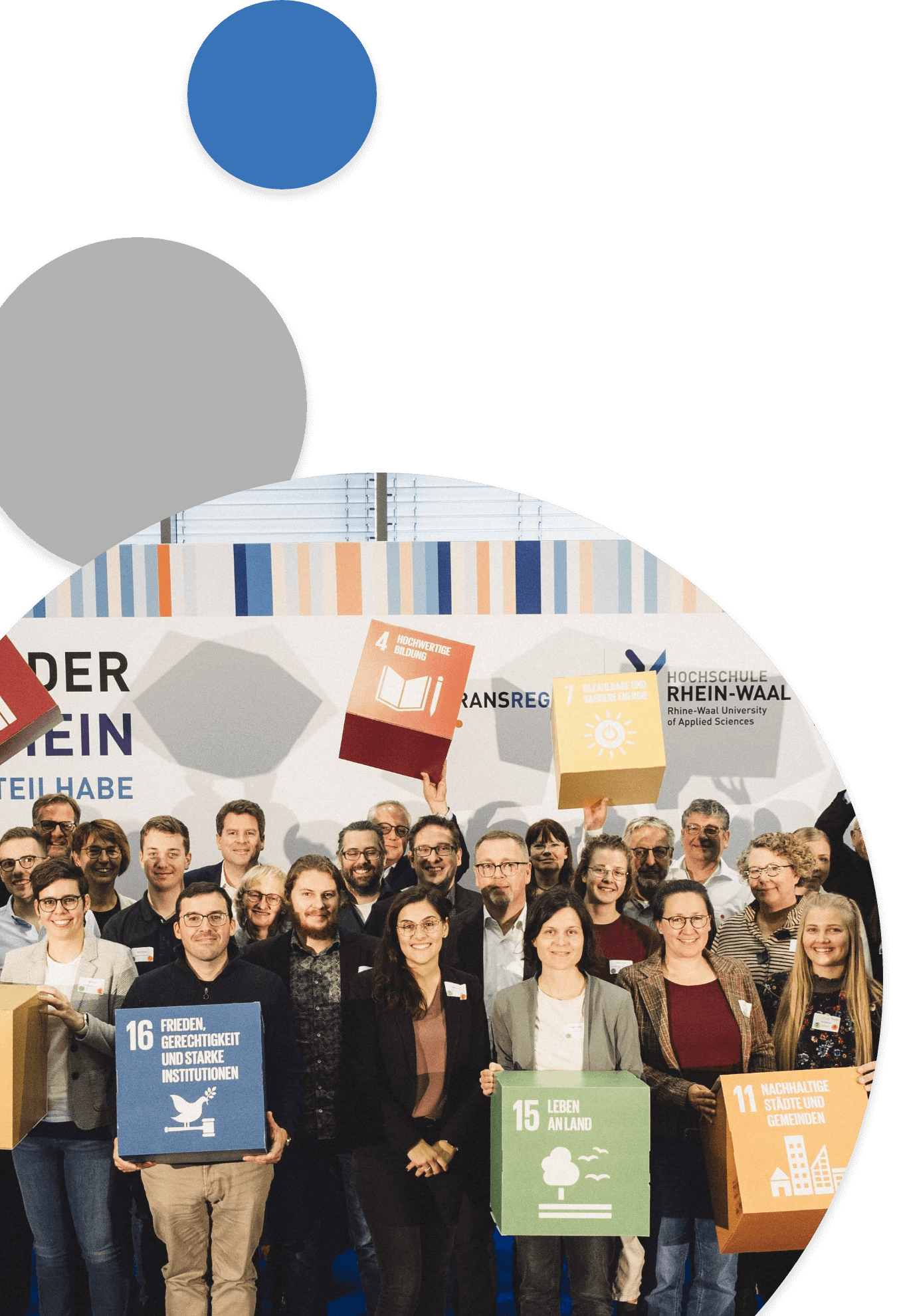
Agroforestry meets politics – Stephan Wolters, MdL, visits HSRW
The term agroforestry stands for the concept of combining woody plants with arable crops and/or livestock farming on a single area. It is based on agriculture or, as Stephan Wolters puts it:
“Agroforestry develops its great added value as a cultivation system in the field.”
Like horticulture, agriculture is one of the outstanding sectors in the Lower Rhine region and contributes to the strategic importance of the area for the economy of the state of North Rhine-Westphalia. Making this economic sector fit for future generations is a major task, as Stephan Wolters and Prof Dr Peter Kisters, Vice President for Research, Innovation and Knowledge Transfer at Rhine-Waal University of Applied Sciences and TransRegINT project manager, agreed. To achieve this, the relationship between the generation of knowledge and technology must be intensified. This will enable research findings to be translated even more effectively into creative solutions for the major challenges of our time. “This is also the main objective of our TransRegINT project,” emphasised Prof. Dr Peter Kisters.
Under the TransRegINT auspices, our Agroforestry Living Laboratory transformation project aims to implement agroforestry systems adapted to the Lower Rhine region and create a regional network of the various stakeholders. The Agroforestry Living Laboratory team provides scientific support for the implementation in order to collect data on the ecological, economic and social benefits of these systems.
Stephan Wolters, member of the Committee on the Environment, Nature and Consumer Protection, Agriculture, Forestry and Rural Areas in NRW, supports the establishment of agroforestry systems on the political side.
“Agroforestry is undoubtedly a promising approach to improving soil fertility, increasing water retention, promoting biodiversity, increasing carbon absorption and strengthening the resilience of agricultural production to climate fluctuations,” he says, summarising the ecological and economic benefits of agroforestry systems.
Meanwhile, we are extending our work from the field to horticulture: Dr Ana Kreter, our Agroforestry Living Laboratory project coordinator, presented the collaboration with Agrobusiness Niederrhein e.V. as a practical example. The Agroforestry team has recently been supporting a member company of the network initiative in establishing a “potted plant forest”, i.e. an agroforestry system in horticulture.
“It is important to exchange ideas with all the people and institutions involved in agroforestry, including not only farmers but also researchers and politicians. I am therefore all the more pleased to have the opportunity to exchange ideas with Mr Wolters. With our different backgrounds, we can unite the various stakeholders in the process of combining agriculture and forestry,” emphasises Prof. Dr Peter Kisters.
Stephan Wolters confirms: “Only together are we strong. Let’s speak with one voice and bring agriculture, science and transformation together.”




Kommentare